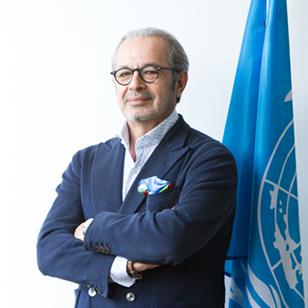Our Common Learning Agenda
In September, UN Secretary-General António Guterres issued a report entitled, Our Common Agenda. While the report looks at the state of the world which has been so much affected by the COVID-19 pandemic, it also offers a road map to build a better future through global cooperation and solidarity. The report is true to its title by declaring that our common agenda must be shaped through multilateralism. Looking into the future, the report positions the ambitious 2030 Sustainable Development Agenda at the front-end of its narrative. Simply put, Our Common Agenda is a reminder that the world should not forget the commitments made to achieve the Sustainable Development Goals in less than 10 years’ time.
A moment to upgrade the United Nations
In outlining 12 key commitments to be made by the global community, the report offers a suite of proposals to accelerate efforts and regain the momentum which has been impacted by the pandemic in order to achieve the SDGs. While the need for continuous learning is present in all commitments, one that particularly stands out for me is commitment number 8: Upgrade the United Nations. As the centre of excellence for learning and knowledge management of the UN system, this is our mandate: to upgrade the skills and competencies of UN staff through cutting-edge capacity-building interventions in the form of courses and knowledge-sharing events.
The Staff College marks its 20-year anniversary next year. Over the years we have been investing in building a strong cadre of staff throughout the UN system. We have gained valuable insights into what staff need to better carry out their responsibilities, and how shared learning that brings staff from different parts of the system makes a much more effective and efficient UN.
Key skillsets for the 21st century
Among his proposals to upgrade the United Nations, the Secretary General calls for establishing a “Quintet of Change” to be implemented over the next five years. The Quintet for the United Nations 2.0 includes key areas where staff’s knowledge should be further enhanced. These include innovation and digital transformation, data analysis and communication, strategic foresight, performance and results orientation, and behavioural science.
As a testament to our readiness to read the learning pulse of the system, in partnership with some of the most world-renowned academic institutions and relevant practitioners in the public and private sectors, the Staff College is currently offering a number of learning opportunities relevant to the “Quintet of Change.” We are also engaged with partners to design new programmes to reflect the priorities of the Secretary General’s report.
How we are answering the call
For me as a professional working in the learning side of the UN’s work, the success of our common agenda also depends on whether we can provide our staff with appropriate opportunities to acquire up-to-date knowledge in such complex and fast-changing areas. One of the key lessons we learned from the pandemic is that UN staff are keen and committed to learn more. In 2020, we experienced a 241% increase in participants in our courses and knowledge events. Going fully digital last year, we remain convinced of the power of learning as an accelerator for transforming the United Nations. The Secretary-General’s Common Agenda has given us the opportunity to develop a common learning agenda fit for the entire UN system. Let us take advantage of it and learn together.
